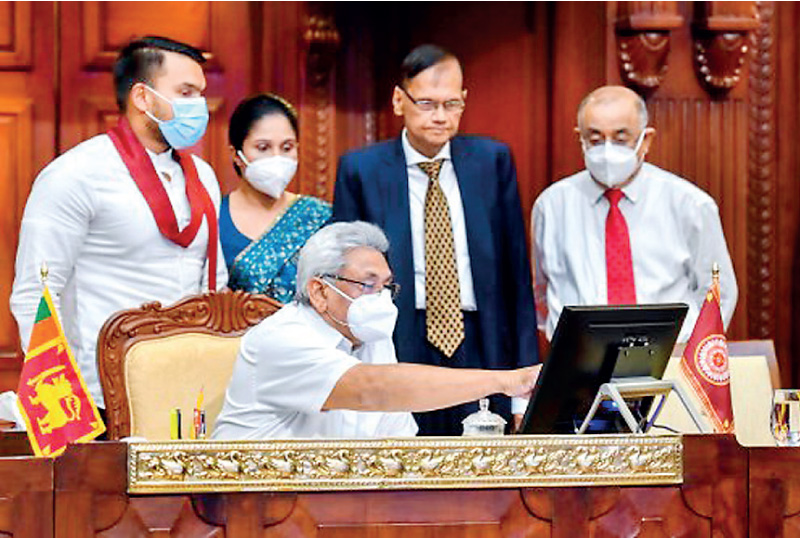Friday Feb 13, 2026
Friday Feb 13, 2026
Friday, 16 July 2021 02:48 - - {{hitsCtrl.values.hits}}

President Gotabaya Rajapaksa yesterday kicked off the ‘City University’ program first announced in the national policy framework ‘Vistas of Prosperity and Splendour’.
The first university is scheduled to be established in the next few weeks in the Pinnawala area in the Kegalle District.
As a prelude, President Rajapaksa launched the official website (www.cu.ac.lk) to introduce the ‘City University’ program as a concept to coincide with the World Youth Skills Day 2021.
The city universities will be equipped with cutting edge technology and established covering all districts, with the aim of producing talented graduates targeting the job market.
80% of those who qualify for tertiary education with GCE Advanced Level qualifications do not get the opportunity to enter universities. Only those who are financially blessed will have the privilege to pursue their further studies at private institutes or abroad. Through the ‘City University’ program, the President expects to offer students degrees suited to the job market for talented and capable students who have passed their A/levels but lack the financial support they need to go to university.
The initiative specialises in formulating degree programs based on a curriculum specific to each district, as well as local and global job markets.
State Minister of Skills Development, Vocational Education, Research and Innovation Dr. Seetha Arambepola stated that graduates of these universities would be empowered with knowledge and professionalism.
Minister of Youth and Sports and State Minister of Digital Technology and Enterprise Development Namal Rajapaksa revealed that youth unemployment fell as low as 4% in 2014 but has risen to 16% by 2019.
Minister Rajapaksa pointed out that youth unemployment could rise to 30% owing to the current global situation and that talented youth should be cultivated through degree programs. The younger generation is moving towards modernity coupled with the latest technology. The Minister said that it was important to adapt to world trends and that it was life, not traditional practices, that should win in the end.
Education Minister Prof. G.L. Peiris pointed out that the aspiration of a graduate was to obtain a good job, but that certain degree courses incompatible with employment opportunities need to be rectified.
Many graduates seek Government employment. However, the President said that the responsibility of a Government should not be to provide jobs but to create a comprehensive economic environment that enables the creation of jobs.
The President said that the objective of the ‘City University’ program is to create a citizen who can directly contribute to the economy, or who possesses the knowledge to engage in self-employment, at the end of the degree course.
“It is not possible to maintain only Government universities 100%,” the President said, but emphasised he was opposed to operating private universities as a business. “Income generated from private universities should be set aside for the promotion of education itself.”
The President also said that those who protest against educational reforms should come up with proposals for a modern education system instead of advocating political motives.
Secretary to the President P.B. Jayasundera, Secretaries to the Ministries, Chairman of the University Grants Commission and other officials were also present at the meeting.